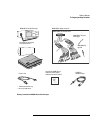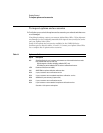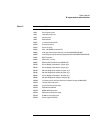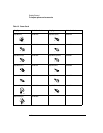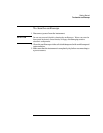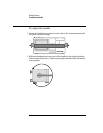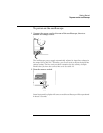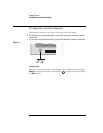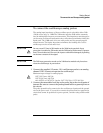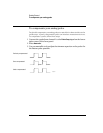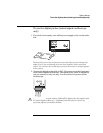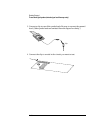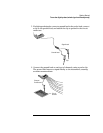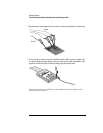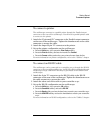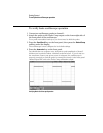
1-15
Getting Started
To connect the oscilloscope analog probes
To connect the oscilloscope analog probes
The analog input impedance of these oscilloscopes is selectable either 50Ω
(54640-series only) or 1 M
Ω. The 50Ω mode matches 50Ω cables commonly
used in making high frequency measurements. This impedance matching gives
you the most accurate measurements since reflections are minimized along the
signal path. The 1 M
Ω mode is for use with probes and for general purpose
measurements. The higher impedance minimizes the loading effect of the
oscilloscope on the circuit under test.
CAUTION Do not exceed 5 Vrms in 50Ω mode on the 54640-series models. Input
protection is enabled in 50
Ω mode and the 50Ω load will disconnect if greater
than 5 Vrms is detected. However the inputs could still be damaged, depending
on the time constant of the signal.
CAUTION The 50Ω input protection mode on the 54640-series models only functions
when the oscilloscope is powered on.
1 Connect the supplied 1.5-meter, 10:1 oscilloscope probe to an analog
channel BNC connector input on the oscilloscope.
Maximum input voltage for analog inputs:
CAT I 300 Vrms, 400 Vpk
CAT II 100 Vrms, 400 Vpk
with 10073C or 10074C 10:1 probe: CAT I 500 Vpk, CAT II 400 Vpk
2 Connect the retractable hook tip on the probe tip to the circuit point of
interest. Be sure to connect the probe ground lead to a ground point on
the circuit.
The probe ground lead is connected to the oscilloscope chassis and the ground
wire in the power cord. If you need to connect the ground lead to a point in the
circuit that cannot be grounded to power ground, consider using a differential
probe.



